Last Updated on December 9, 2022
Your betta lives 24/7 in the water you provide, so you must always look after the water quality.
Bettas needs clean and well-maintained water to live a healthy life.
However, you must be well-prepared for events such as your betta not liking its water regardless of your best efforts.
As a fish owner, you always want what’s best for your betta fish. However, Like other pets such as dogs and cats, they each have their preference.
So choosing the suitable water for betta might require a bit of experimentation.
Gear up! Let’s talk about what kind of water bottle your betta needs. We’ll also discuss other important aspects like the water condition, other suitable water for your fish, and more.
Table of Contents
Key takeaways
- Pesticides, chemicals, and chlorine are hazardous for your betta.
- Spring and filtered water are the best bottled water for betta fish.
- Avoid using distilled or purified as it doesn’t have the minerals your fish need.
- You can use some water sources as an alternative to bottled water.
- Betta-specific water is quite expensive, but it can save you a lot of time and effort.
- Tap water is safe to use as long as you test and treat it before putting it in your betta tank.
- Using water conditioner and stress coat additives helps your betta fish remain healthy.
What water to use for betta fish?
Betta fish live in muddy waters, such as rice paddies, slow-moving streams, and ponds. These are natural environments for them.
Thus, bettas thrive and develop so that their bodies can take any disturbances in the water when they live in these places.
But a pet betta is not the same as wild bettas. They will need enough nutrients and require you to provide the safest water possible so they can live to their full potential.
Your top priority should be ensuring your water is free from harmful substances. Here are the main things to avoid:
- Pesticides
- Chemicals
- Chlorine
You need to look out for these things, but other factors make a healthy water environment for your betta. Let’s talk more about that soon.
What’s the best bottled water for betta fish?
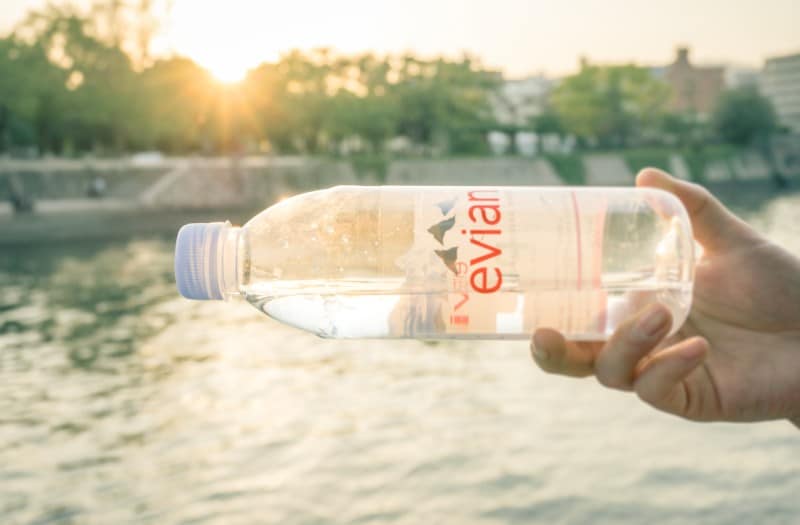
Using bottled water for betta fish might be convenient, but they aren’t all the same.
You need to understand the differences between the water and test each water’s compatibility with your betta fish.
Spring Water
Spring water is sourced and filtered from underground. Since it’s not processed, bottled spring water contains many minerals that are good for betta fish health. It’s also chlorine-free, so it’s an excellent alternative for tap and distilled.
Moreover, the pH level of bottled spring water ranges from 6.5-8, making it suitable water for betta fish.
The only downside is that bottled spring water is much more expensive than typical tap water.
Purified or Distilled water
Distilled water is processed to remove all the chemicals, nutrients, and minerals. That leaves you with only pure water.
Although it’s okay to use this type of bottled water, you’ll need to control the proper pH levels and add the right amount of nutrients for your bettas to survive. Otherwise, your betta fish won’t be able to thrive in such an environment.
But, if you plan to go this route, it would be better just to use plain water instead and do the same treatment as you would if you used distilled water.
You must prioritize proper water treatment to ensure your betta survives and lives.
Filtered water
You might think that filtered and distilled or purified water is the same, but they’re different. Filtered water is cleaned by removing impurities, bacteria, and other contaminants through filtration.
But it doesn’t undergo chemical treatment, so the minerals and nutrients will remain.
This helpful substance is suitable for your bettas, making filtered betta fish water a better option than distilled.
On top of that, the pH level of filtered water is also ideal for betta fish tanks.
What water can I use for my betta fish tank?
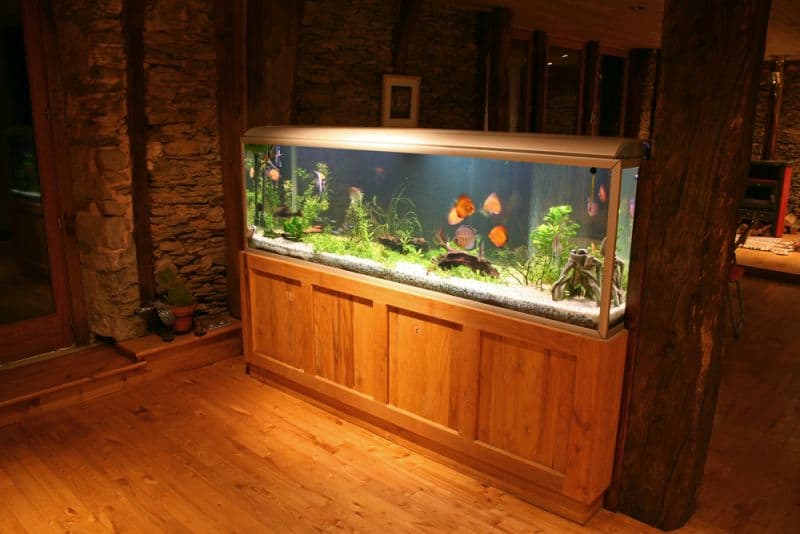
Aside from bottled water, there are more water sources that you can use for your betta fish tanks.
Well water
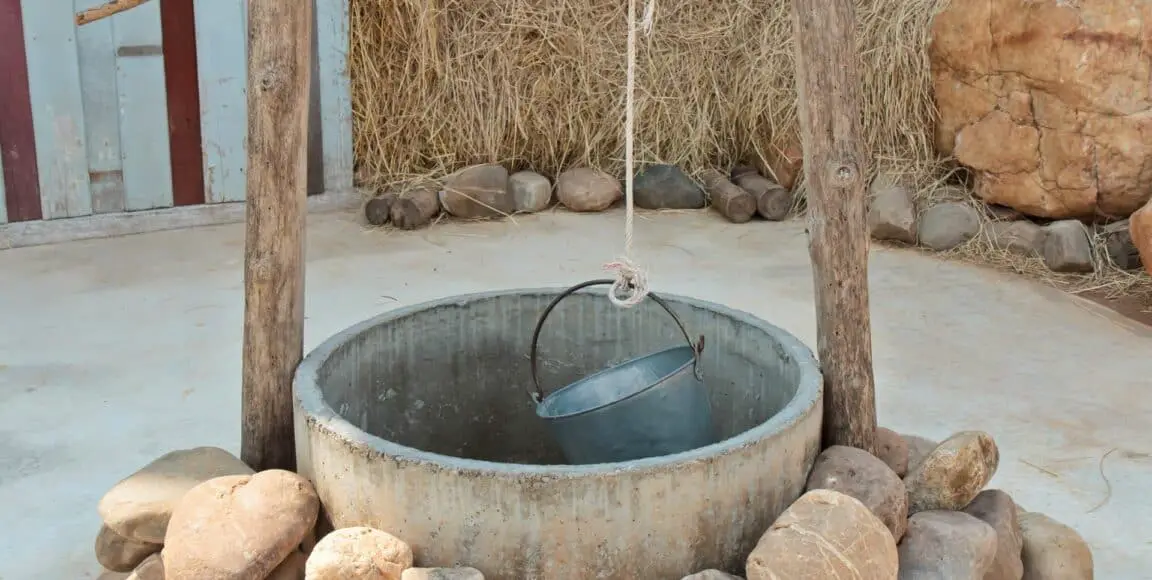
Well water is an abundant source of water but you still should take a step back in using it straight from the source in your betta fish tank.
Some wells are clean and purified already, which you can use for your betta directly.
It acts as a more natural substitute as it comes directly from the ground and doesn’t go through any chemical treatments or process that removes helpful substance, unlike distilled water.
But natural water doesn’t always mean that it’s perfectly safe for a betta.
Before you use your well water, get it tested for chemicals and impurities.
If it turns out to have harmful substances, you need to treat the water before you use it. But if it’s clean, then you’ll have plentiful water that you can use for your bettas.
Tap water
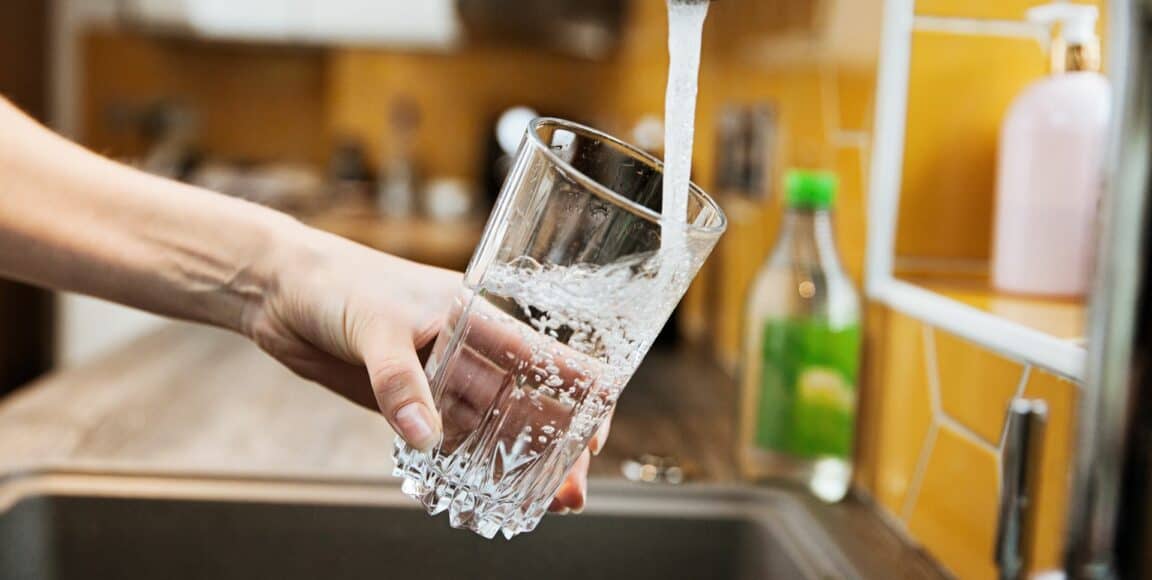
While it’s so much easier to pour tap water into your fish tank, it’s not recommended, especially if you don’t know the substance your tap water contains.
Tap water has chlorine that’s harmful to bettas. It can affect the eyes and gills and will continue to be harmful as long as it’s present in your betta tank.
It’s crucial to be mindful of the water that you use, as it’s where your betta will live 24/7.
The quality of tap water will depend on where you live. So there’s a possibility that you could have the safest tap water. But always make sure to test and treat.
Here’s what you can do to treat your tap water.
Remove the chlorine
Collect your water and put it in a container. Let the chlorine dissolve. It will do so naturally as it’s air soluble. Leave it for at least 24 hours or more, if possible. It will depend on how much water you collected and how long it’s exposed to the sun.
Boil the water
We usually boil water to remove impurities. The same should go when using water for betta fish. Boil for about 20 minutes, more or less, and let it cool down before transferring it to the tank. The water temperature should be about 78-80F or 25-27C.
Use a carbon filter
Carbon filters are quite expensive but useful to your fish tank. You can use the carbon filter to clean any chemicals present in your water before you add your betta.
Using carbon filters is recommended if you have multiple large tanks.
You can even install it straight into your faucet, so you can be sure that your water is safe. But, using a carbon insert may not be a good idea if you want to encourage plant growth as carbon removes a good amount of CO2 from the water.
Add water conditioner
Lastly, you can use water conditioners to ensure your betta is safe.
The water conditioner removes chlorine and heavy metals still present after boiling or treating it with a carbon filter.
It also helps stabilize the pH level of your betta fish water and eliminate nitrates. that can kill your betta fish.
Betta specific water
This specially prepared betta water is already pre-conditioned. They remove toxic chemicals and follow the correct pH level for bettas.
You’d have to pay a bit more because of its convenience. But you can save lots of time and money as well, so why not?
It could be an excellent option for some people. For example, those looking for a perfect substitute and have the budget and those who aren’t keen on treating their water.
While spring water or filtered water can do the job, betta-specific water is the most convenient and suitable for betta owners.
Rainwater
Some people use rainwater as water for betta fish, and that’s okay. However, using pure rainwater might not be safe as its pH and KH levels are both low.
KH refers to carbonate hardness, which is essential for a betta’s health as it helps neutralize acidity in water.
Another thing to consider is where the rainwater passed before reaching your container. For instance, if you fetch it directly from the sky, you can use it. But if the water passes ran off the gutter or roof before it reaches your container, you may have to think twice.
You might introduce bacteria or chemicals that could harm your betta fish.
If you don’t have any choice, slowly introduce rainwater to your fish. You can start with 30% rainwater and 70% tap water and gradually increase the amount of rainwater over time.
Treating rainwater is also an option. You can do this by using a buffer solution or adding baking soda, which helps raise KH levels in the water. Baking soda also helps raise pH, but use it moderately.
Just make sure to monitor your betta fish’s behavior to be sure that he’s comfortable with the water. If not, adjust the water parameters right away.
Reverse osmosis water
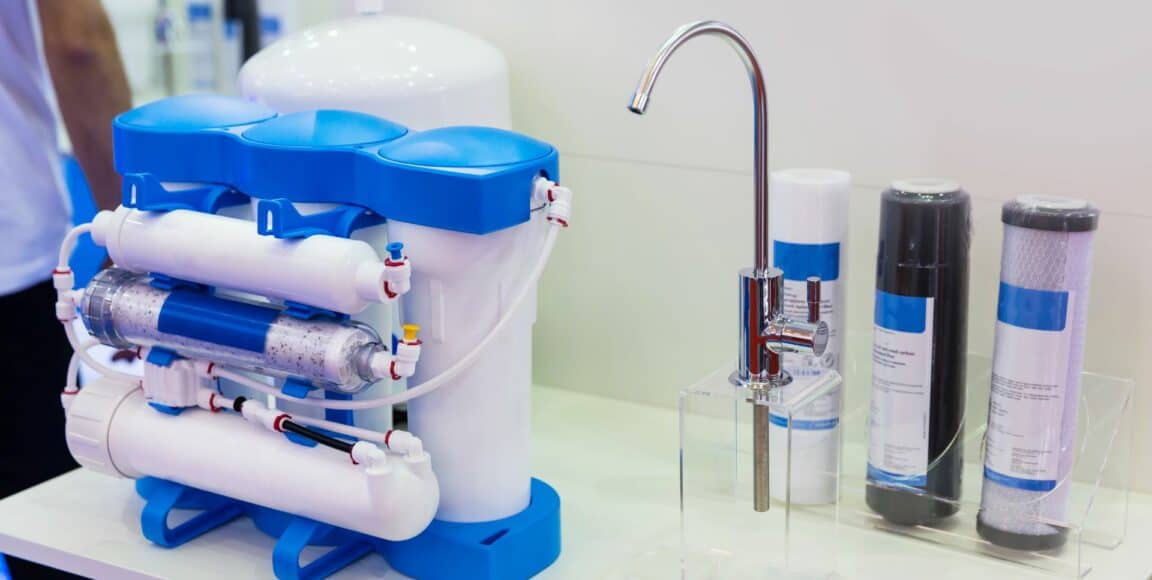
Reverse osmosis water is a type of water in which harmful substances and minerals have been removed.
Some fish stores offer a bottled version of this, but you can also buy your own system at home. Although it’s chlorine-free and the pH level is somewhat neutral, it doesn’t do much in terms of providing essential minerals.
To remineralize your aquarium, you’ll need to apply a technique that involves adding calcium sulfate and magnesium sulfate or using an aquarium-grade remineralizer.
How much water do betta fish need?
Your betta fish might be small, but it still needs enough water to thrive. Although it can live in a 1-3 gallons tank, it’s best to provide it with at least 5 gallons (18.9 liters) of water.
This way, you can ensure that the water quality is continuously optimal and your betta fish has enough room to roam around.
If you can go bigger than that, why not? It will do wonders for your betta’s health and happiness. But always remember that your betta fish tanks should not be deeper than 12 inches (30 cm.)
Best betta fish water conditions
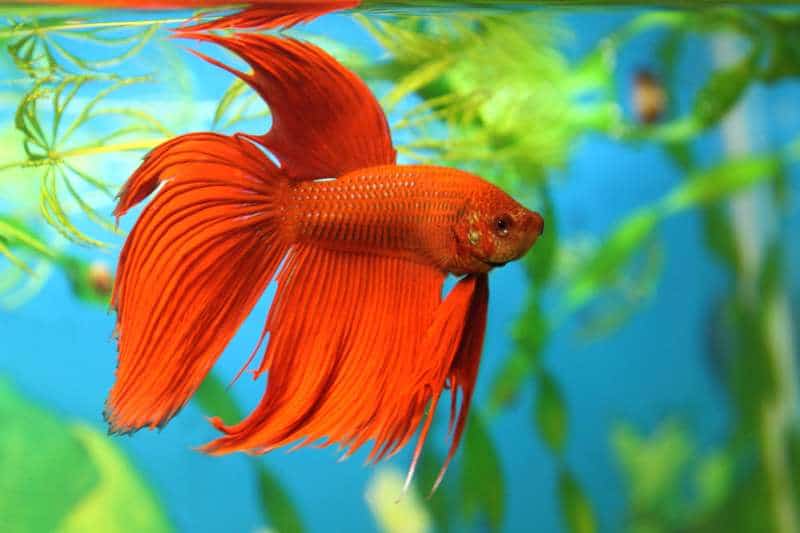
Betta fish love calm water flow with a pH of between 6.8 – 7.5 and a temperature between 25-27ºC or 78-80ºF.As a betta fish owner, you need to remember these important details.
Then, you must provide the cleanest water possible. In doing so, here is our guide to help you keep your betta water safe and clean.
Follow the proper water parameter
Water parameter refers to the ideal pH levels, ammonia, nitrate, nitrite, etc. in your betta’s environment.
You can buy a water test kit to measure these parameters. If you don’t have one, you can buy it online or visit a pet store near you.
Here are the best water parameters for your betta fish.
- Temperature: 78-80ºF (25-27ºC)
- pH: 6.8-7.5
- KH (Carbonate hardness): 3-5 dKH (53.6- 89.4 ppm)
- GH (General hardness): 3-4 dGH (50-66.7 ppm)
- Nitrate: less than 20 ppm
- Ammonia and Nitrite: less than 0.5 ppm
Check your water condition
This is why the type of water you use for your betta fish tank matters.
Tap water may contain chlorine and other contaminants, which could be harmful to your betta fish. It’s best to use treated or conditioned water for the tank.
You can do this by using a water conditioner. Like mentioned, a water conditioner can help you remove chlorine and other unwanted contaminants from tap water.
Add stress coat additive
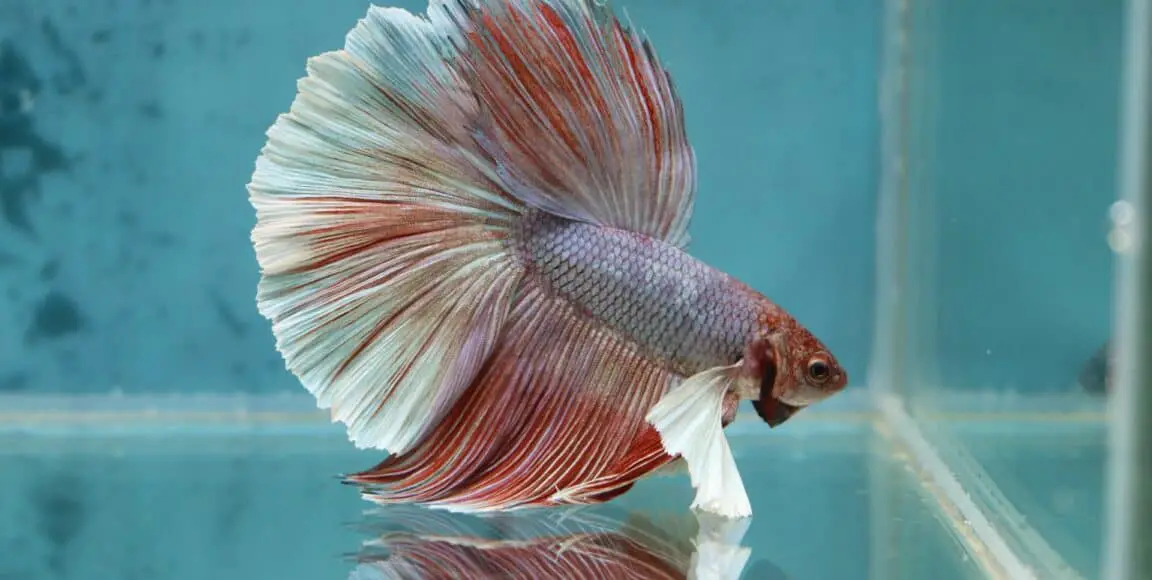
Stress is a big factor in betta fish health. To reduce stress in your betta fish tank and a protective layer, it’s best to add a stress coat additive to the water.
It is a water conditioning agent that helps reduce stress in betta fish. It also helps heal any wounds and promotes the development of slime coats.
Add a few drops of stress coat additive to your betta tank once every two weeks, as long as you change the water regularly.
Clean and change the water regularly
At least every week, you can change the water partially, about 15-20%.
The frequency of how much water cleaning you will do will depend on the size of your aquarium and the number of fish in it.
If you have a filter and plants inside the tank, you can do a full clean-up every six months, more or less.
Without a filter, you may need to clean it fully every 5-8 weeks, as the buildup of waste products can be harmful to your betta.
Remove all the water and scrub the fish tank as perfectly clean as possible. Any impurities can be harmful if your betta accidentally consumes them.
Use a water conditioner
Water conditioners for betta contains healthy elements that your betta will benefit from.
- Removes chlorine and harmful chemicals from tap water
- Converts ammonia into a safer element or removes it
- Provides a healthy slime coating
- Promotes healing for injured betta
These are some benefits a water conditioner provides. But remember that water conditioners in the market are not all the same. One may have something the other doesn’t. So check all their labels and see which is the best bang for the buck.
Install a water filter
Fish tank filtration is essential if you want your aquarium to be clean. It helps neutralize ammonia present in the tank and keeps the beneficial bacteria that are helpful for your betta.
There are various filters available in the market. When buying one, check the durability, noise, size, and reliability. As always, read the reviews from professional betta fish owners who have a fair share of using specific filters.
Related: Can Betta Fish Live in a Bowl Without a Filter
Final thoughts
The best water for betta fish may vary depending on your betta.
They may prefer spring water over distilled water. It’s better to see it for yourself and take note of which water they enjoy best.
Also remember that besides bottled water, there are other types of water you can use. Tap water is okay but be sure to treat it and make the water condition suitable for your betta.
Rainwater and well water are also some of the options if you have access to them. They are free, natural, and somehow safe to your betta fish.
Just note that whichever type of water you choose, make sure it’s clean and free from impurities.
Your betta fish will be happy and healthy in their aquarium with proper care and maintenance!
Frequently Asked Questions
What kind of water does a betta fish need?
Your betta fish need water free from chlorine, chemical and harmful substance but still has minerals and nutrients. Although there’s no one size fits all for betta fish water, some of the best candidates are spring, filtered, and betta-specific water.
Is bottled spring water good for betta fish?
Yes. Bottled spring water contains minerals that are good for betta fish. It’s also chemical-free and has a good pH level.
Can you use distilled water for betta fish?
They are not the best choice for betta fish, as distilled or purified water can be too low in minerals. They are chlorine-free and chemical-free, but you’ll need to add some minerals and nutritional supplements to ensure your betta fish is getting all the nutrients they need.
What are the best water parameters for betta fish?
The temperature should be around 78-80ºF (25-27ºC), ph levels at 6.8-7.5, nitrate less than 20 ppm, ammonia and nitrite less than .5 ppm, KH at 3-5dKH, and GH should be at 3-4 dGH.


